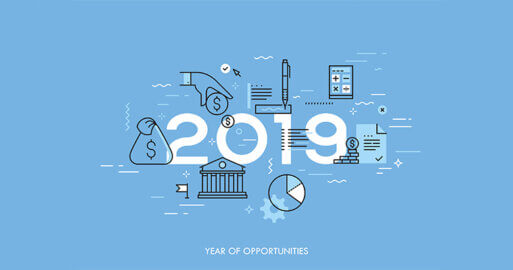Reaching New Frontiers with Blockchain
 Being one of the hottest topics in Technology today, Blockchain leads to controversial discussions whether and if so, how it will change the way businesses work. This post highlights the most interesting findings from our visit of the Blockchain Conference, EDNA Fachtag and re:publica 2018.
Being one of the hottest topics in Technology today, Blockchain leads to controversial discussions whether and if so, how it will change the way businesses work. This post highlights the most interesting findings from our visit of the Blockchain Conference, EDNA Fachtag and re:publica 2018.
In March and May 2018 SEEBURGER attended the Blockchain Conference in Berlin, the EDNA Blockchain Conference in Karlsruhe and the re:publica 2018 in Berlin to gain and share more insights on the current developments in the ecosystem – business and technology-wise.
Based on the presentations and the workshops we visited, we found the following Blockchain topics the most interesting:
1. Privacy-by-Design Approach in regards to Blockchain applications:
With the GDPR-Act coming into force across the European Union the privacy of personalized information is of even higher importance than it was before due to the significance of the penalties for noncompliance. Especially the rights to rectification and erasure can pose obstacles for operators of blockchains and blockchain-based businesses. Having the obligation to ensure an erasure of personal data is conflicting with the underlying idea of a distributed and not easily modifiable data storage, especially when IP-addresses, wallets and device-ID’s are understood as personal data and thus conclusions concerning the identity of the user can be drawn. On top of this, it is highly questionable how the Collector-Processor model which this act is based upon, can be applied to a blockchain, since there is no clear distinction towards those roles. In a worst case scenario miners, nodes as well as participants could be deemed controllers and processors at the same time. Until this question gets clarified by case law it seems best to follow the privacy-by-design approach, which asks for understanding privacy as key element of the given business model and taking into account the given implications for the business model design process.
2. Decentralized Know-Your-Customer (KYC) Offerings:
The sheer amount of projects offering decentralized KYC solutions in the wake of the GDPR-Act is rising. Projects like golem or civic offer tokenized digital identity checks for companies which lack the necessary infrastructure for in-house KYC measures. By checking the end-customer’s private information and storing them in their decentralized network, these projects take full legal responsibility for complying with KYC and AML regulations. This especially relieves smaller startups and companies from a lot of pressure by making the necessary information available on the spot with a token based API call without the need to have complicated software on their premises.
3. Shared Digital History utilizing Blockchain’s ledger technology:
Digital History based on the Blockchain technology might actually become a key driver for real life applications of the technology. The idea is to record all changes that are being made to the original data item to guarantee full accountability of the modifications for the counterparty. This approach seems especially interesting for digital identity and supply chain management as well as to track changes in software stacks and comparable products.
4. Integrated Energy Distribution via Blockchain:
The current state of affairs in the utilities industry involves a lot of electronic data interchange between various players – from generators to transmission and distribution grid operators as well as retail companies. Various projects are in the process of streamlining this communication and pushing it into a distributed ledger system (like IOTA or Electron) to serve as a hub. Both of these technologies are distributed ledger systems that focus on quick and lightweight “transactions” that speed up the process of transferring data from the participant into the network. This way all market participants can access the needed information on their own and write new information that gets verified by others, e.g. meter data, status information and more.
5. Luxury Items Tracking on the Blockchain:
The idea of digital twins is somewhat older, but was not explored in details due to technological restrictions. With the rapid rise of IOT-devices and smart sensors a new generation of startups is trying to prove their worth by taking proven approaches and expanding those with the benefits of blockchain technology. These startups aim to provide a digital twin to document the point of origin, the transactions and the storage of luxury items, like for example diamonds, expensive wine and other collectors’ items.
While the recent roller-coaster for cryptocurrencies is not affecting the Blockchain ecosystem as a whole, it shows that the hype around the technology is keeping on as more and more investors get interested in the technology. And with a maturing technology even more startups emerge that are actively looking to find feasible use cases for the application of the technology and solving real world problems with it, which all in all is a great outlook. But while we’re at it – there is still one major real world problem deeply connected to the technology, namely the power consumption of the first generation Blockchains like the Bitcoin network.
The current power consumption for one block that is being cryptographically calculated and put forth into the network averages at 788 kW per 10 Minutes that it takes to encrypt it. This amount of energy is the equivalent to the daily consumption of about 26 typical US households and it is one major obstacle for mass adoption. It’s up to the developers to find a good way to deal with it and take the next steps to evolve the distributed ledger concept.
As a market leader in business integration software, SEEBURGER is constantly looking for new ways to innovate and bring even more value to our customers and business partners. We will keep you posted with more Blockchain and distributed ledger technology related information as well as other improvements of the SEEBURGER Business Integration Suite (BIS), stay tuned!
Read more about SEEBURGER and digital transformation here
Thank you for your message
We appreciate your interest in SEEBURGER
Get in contact with us:
Please enter details about your project in the message section so we can direct your inquiry to the right consultant.
Written by: Julien Ziemnicki
Julien Ziemnicki, Senior Consultant, is working with strategic business development activities in Europe and the North American Market related to vertical market innovation. Julien has more than 5 years of experience in software solutions working with API, MFT, Analytics, Big Data and Digital Transformation. Julien has been with SEEBURGER since 2016 and prior to this with SAP.





